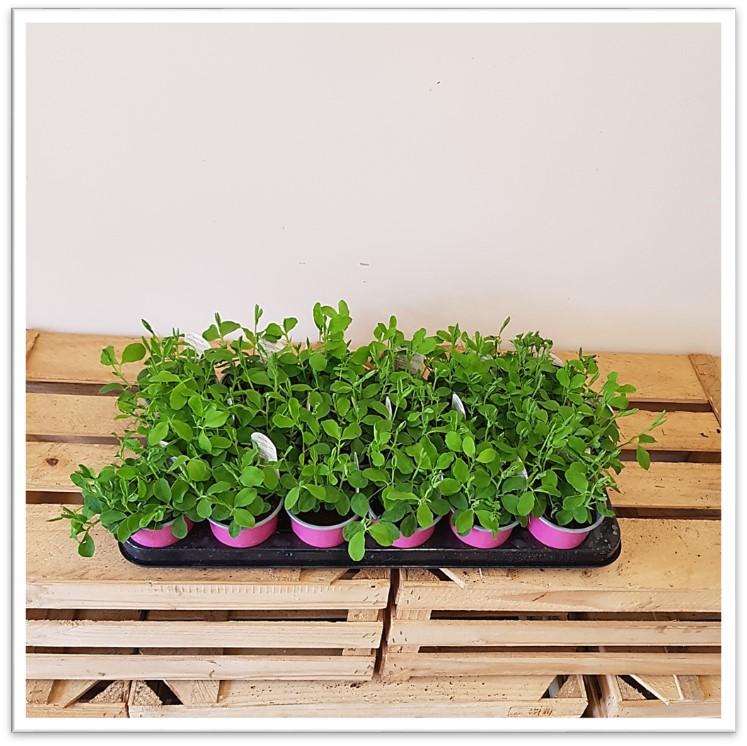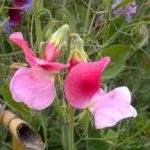Sweet Peas Mixed 10.5cm
£1.50
Out of stock
Sweet Peas (Lathyrus odoratus) Plant Description:
Sweet peas are popular flowering plants known for their fragrant and colorful blooms. Here’s a detailed description of sweet peas:
Plant Type:
Sweet peas are annual climbing plants.
Vines and Climbing:
Sweet peas are climbing plants that produce tendrils, allowing them to climb and grow vertically.
They are often grown on trellises, fences, or other support structures.
Foliage:
Leaves: Pinnate leaves with paired leaflets along a central stem.
Texture: The foliage is typically soft and delicate.
Flowers:
Blossoms: The flowers are characterized by a distinctive butterfly-like shape with a banner, wings, and keel.
Fragrance: Many sweet pea varieties are prized for their sweet and pleasing fragrance.
Colors: Available in a wide range of colors, including shades of pink, purple, red, blue, and white.
Bicolor Varieties: Some sweet peas exhibit bicolor patterns, adding to their visual appeal.
Inflorescence:
Flowers are arranged in loose clusters along the stems.
Blooming Period:
Sweet peas typically bloom in spring to early summer, depending on the climate and planting time.
Height:
Growth can vary, but many sweet pea varieties reach heights of 3 to 6 feet (0.9 to 1.8 meters).
Hardiness:
Sweet peas are generally grown as annuals, although they may overwinter in mild climates.
Sun Requirements:
Prefer full sun but can tolerate partial shade, especially in warmer climates.
Soil Conditions:
Well-draining soil with organic matter is ideal.
Regular moisture is important for optimal growth and flowering.
Moisture Needs:
Sweet peas appreciate consistently moist soil. Adequate watering is crucial, especially during dry periods.
Uses:
Popular for cut flower arrangements due to their attractive blooms and fragrance.
Suitable for gardens, borders, and containers.
Used for vertical gardening to cover trellises or fences.
Cultural Significance:
Sweet peas are often associated with sentiments of appreciation and are considered symbols of delicate pleasures.
Widely grown for their charming appearance and delightful scent.
Companion Planting:
Planting sweet peas alongside other flowers or vegetables can contribute to a diverse and vibrant garden.
Seed Pods:
Sweet peas produce seed pods after flowering. Harvesting them can encourage further blooming.
Varieties:
Numerous sweet pea cultivars are available, including heirloom varieties and modern hybrids. Each offers unique colors and characteristics.
Growing sweet peas requires attention to soil preparation, support structures for climbing, and regular deadheading to encourage prolonged flowering. The fragrant and charming blooms make sweet peas a favorite among gardeners for both ornamental and cut flower purposes.
| Flower Colour |
TBC |
|---|---|
| Size |
Small |
| Root Type |
TBC |
| Foliage Colour |
TBC |
| Soil Type |
TBC |
| Addition |
No |
Only logged in customers who have purchased this product may leave a review.






Reviews
There are no reviews yet.